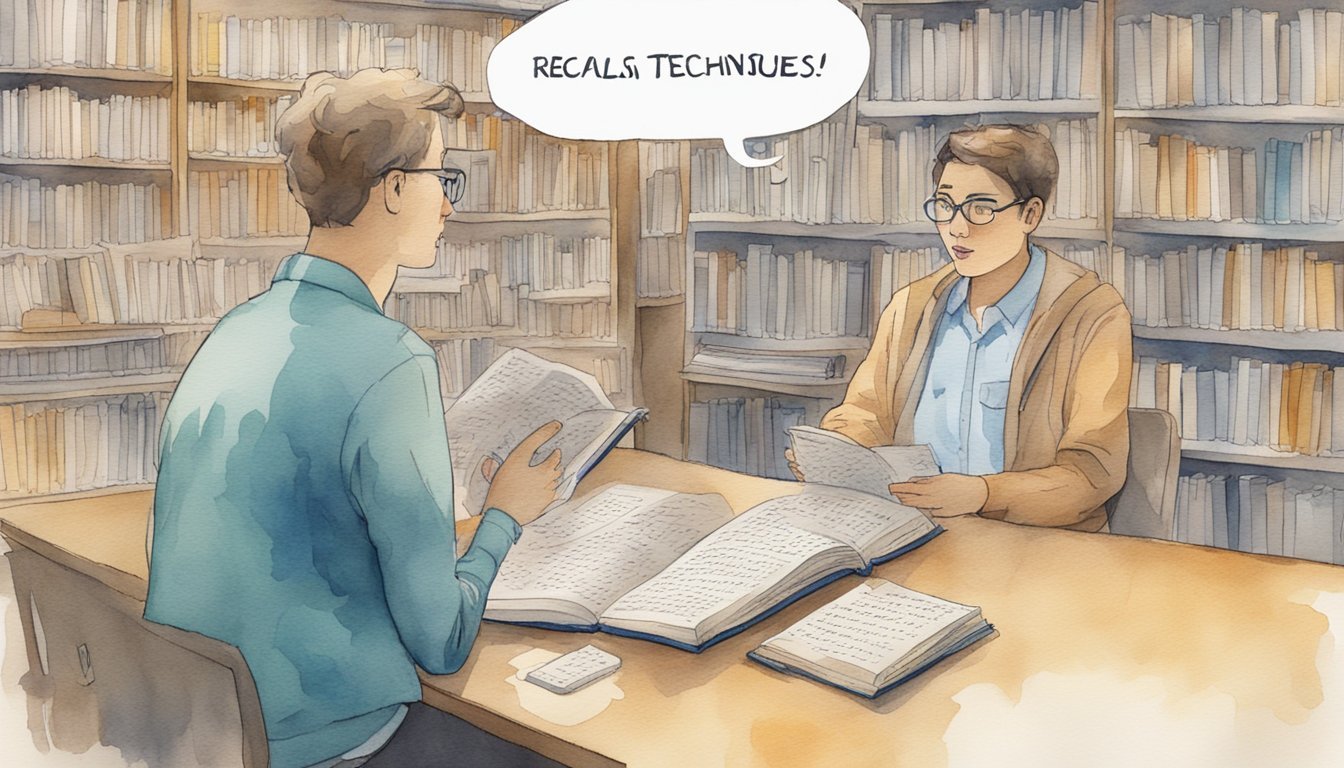Understanding Word Forgetting
In exploring word forgetting, it’s important to distinguish between normal memory challenges and symptoms that may indicate a disorder. This section examines the basics of why we forget words, how various disorders can impair language, and the effects of aging on cognitive abilities.
The Basics of Forgetting Words
Forgetting words during conversation is not uncommon. It often involves a temporary inability to retrieve a word from memory, known as a “tip of the tongue” state. This phenomenon can occur regardless of age or intelligence level and does not necessarily signify an underlying memory disorder. For many, it is simply a momentary lapse in the complex process of language retrieval.
Types of Aphasia and Related Disorders
Aphasia is a communication disorder that can impact speech, writing, and the ability to understand language. Symptoms of aphasia include trouble with finding the right word and using unrecognizable words. Types of aphasia range from anomic aphasia, where individuals struggle with naming objects, to global aphasia, the most severe form, which severely limits the capacity to communicate. Apraxia and dysarthria are related issues, affecting the motor aspects of speech rather than language processing.
The Role of Aging and Cognitive Decline
As people age, changes in cognitive functions, including memory, thinking skills, and reasoning can occur, leading to more frequent memory lapses. This can also reflect the onset of conditions like mild cognitive impairment or Alzheimer’s disease, which involve the degeneration of brain cells and atrophy. It’s important to consider these changes within the context of overall cognitive health, as occasional word forgetting is a normal part of aging, but persistent or worsening issues warrant further evaluation by a professional.
Causes and Treatments of Word Forgetting

In exploring the causes and treatments of word forgetting, it is crucial to understand the various factors that can contribute to this condition and the options available to manage or alleviate it.
Common Causes of Word Forgetting
Forgetting words while talking is a common experience that can occur for a variety of reasons. In older adults, it’s often just a normal part of aging. However, more persistent issues might suggest the presence of an underlying condition like aphasia, a communication disorder often resulting from stroke or head injury that affects the ability to speak, write, and understand language. Neurological disorders such as dementia — including Alzheimer’s disease, vascular dementia, Lewy body dementia, and frontotemporal dementia — can also lead to forgetting words. Other factors like anxiety, depression, sleep apnea, brain tumors, or even vitamin B12 deficiency can contribute to this phenomenon.
Medical and Non-Medical Treatments
When word-forgetting results from a reversible cause, addressing the underlying issue often improves the symptoms. Treatments can range from medications to manage conditions like depression or hypothyroidism to surgery for treating brain tumors. Along with medical interventions, therapy forms an essential part of treatment for language problems. Speech and language therapy, sometimes guided by a clinical neuropsychologist, can help individuals recover and improve their communication skills. In cases of stroke or brain injury, early diagnosis and prompt therapy are crucial for recovery.
Lifestyle Changes and Coping Strategies
In addition to medical treatments, lifestyle changes can assist individuals in managing word-forgetting episodes. Regular exercise and social interaction can promote brain health and reduce the risk of developing memory problems. Avoiding excessive alcohol and ensuring quality sleep are also important. For those experiencing this condition, employing coping strategies such as keeping a diary of forgotten words or descriptive phrases can help. A neurologist or psychologist may offer cognitive techniques to practice, and family members can support by engaging in conversations and providing a reassuring environment.

